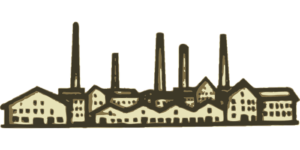Human Resources – 20 Trending s offers an insightful exploration into the evolving landscape of HR practices. In today’s fast-paced work environment, HR plays a critical role in shaping organizational success, employee satisfaction, and retention rates. By understanding the latest trends and practices, HR professionals can better navigate challenges and harness opportunities that arise in the workplace.
This discussion delves into current HR trends, the significance of remote work, and the growing emphasis on diversity and inclusion. Additionally, it examines the intersection of HR with customer service, ethics, and entrepreneurial ventures, showcasing how these elements can drive both employee engagement and organizational performance.
Understanding Human Resources
Human Resources (HR) plays a pivotal role in modern organizations, serving as a bridge between management and employees. HR professionals are responsible for fostering a positive work environment, ensuring compliance with labor laws, and implementing policies that enhance employee satisfaction and retention.
Role of Human Resources in Organizations
The primary function of HR is to manage an organization’s most valuable asset—its people. This includes recruiting talent, providing training and development opportunities, and ensuring that employees are aligned with the company’s goals. HR also handles conflict resolution and plays a key role in shaping organizational culture.
Key Responsibilities of HR Professionals
HR professionals have a diverse range of responsibilities, including:
- Talent acquisition and onboarding new hires.
- Developing training programs for employee skill enhancement.
- Managing employee benefits and compensation.
- Ensuring compliance with workplace regulations and labor laws.
- Conducting performance evaluations and providing feedback.
Impact of HR on Employee Satisfaction and Retention

Research has shown that effective HR practices can lead to higher employee satisfaction and retention rates. When employees feel valued and supported, they are more likely to remain with the organization, thereby reducing turnover costs and maintaining a stable workforce.
Trending Topics in Human Resources
The HR landscape is constantly evolving, and staying updated on current trends is essential for successful HR management. This section highlights several key trends that are shaping HR practices today.
Current Trends Influencing HR Practices
Among the most significant trends impacting HR are:
- Adoption of remote work policies.
- Increased focus on diversity and inclusion initiatives.
- Integration of HR technology and data analytics.
- Emphasis on employee well-being and mental health.
Significance of Remote Work Policies
The shift to remote work has transformed how organizations operate. Companies are now exploring hybrid models that blend in-office and remote work, allowing for greater flexibility and work-life balance. This trend not only helps in attracting talent but also enhances employee productivity and job satisfaction.
Importance of Diversity and Inclusion Initiatives
Organizations are increasingly recognizing the value of diversity and inclusion. By promoting a diverse workforce, companies can benefit from a variety of perspectives, leading to enhanced creativity and innovation. Furthermore, inclusive practices help create a sense of belonging among employees, which is crucial for retention.
Customer Service in HR
Customer service is not just a function of sales and marketing; it also extends to how HR interacts with employees. Improving internal customer service can lead to a more engaged and productive workforce.
Improving Customer Service within HR
HR can enhance customer service by:
- Streamlining HR processes to reduce wait times for employee inquiries.
- Implementing self-service portals for easy access to HR information.
- Creating a feedback mechanism for continuous improvement.
Training Employees in Customer Service Best Practices
Training programs should focus on equipping employees with the skills to handle customer interactions effectively. This can include role-playing scenarios, workshops on communication skills, and training on conflict resolution techniques.
Relationship Between HR Policies and Customer Satisfaction
HR policies significantly impact customer satisfaction. When employees are satisfied and engaged, they provide better service to customers. This correlation highlights the need for HR to prioritize employee welfare to ultimately enhance customer experiences.
Entrepreneurialism and HR
In the realm of entrepreneurship, HR plays a crucial role in laying the foundation for new ventures. Startups often face unique challenges that require tailored HR strategies.
Supporting Entrepreneurial Ventures
HR can support startups by establishing a strong organizational culture and ensuring that the company attracts the right talent. HR practices should focus on agility and adaptability to meet the fast-paced demands of entrepreneurial environments.
Fostering Innovation in Startups
To foster innovation, HR can implement strategies such as:
- Encouraging open communication and collaboration.
- Providing resources for professional development.
- Creating a flexible work environment that promotes creativity.
Impact of HR on Talent Acquisition for New Businesses
Effective HR practices are vital for startups to attract top talent. By offering competitive compensation packages, a positive work culture, and opportunities for growth, new businesses can position themselves as desirable employers in a competitive job market.
Business Ethics in Human Resources
Ethics in HR is paramount, as professionals frequently face dilemmas that can impact the integrity of the organization. Upholding ethical standards is essential for maintaining trust and credibility.
Ethical Dilemmas Faced by HR Professionals
HR professionals often encounter dilemmas such as:
- Balancing company policies with employee rights.
- Navigating conflicts of interest during recruitment.
- Ensuring fair treatment of all employees.
Importance of Ethical Recruitment Practices
Ethical recruitment practices are crucial for building a strong workforce. Organizations must ensure transparency in their hiring processes, avoid bias, and promote diversity to uphold ethical standards.
Methods for Promoting Ethical Behavior
Organizations can foster ethical behavior by:
- Providing training on ethical decision-making.
- Establishing clear codes of conduct.
- Encouraging employees to report unethical behavior without fear of retribution.
Business Franchising and HR
Franchised businesses often present unique challenges and opportunities for HR. Understanding the differences in HR functions is essential for success in this model.
Differences in HR Functions in Franchised Businesses
HR in franchised operations must align with brand standards while also addressing local employee needs. This requires a balance between consistency and flexibility in policies and practices.
Importance of Adhering to Brand Standards
Adhering to brand standards is vital for maintaining the franchise’s identity. HR policies should reflect the core values of the brand while allowing individual franchises some autonomy to cater to local markets.
Strategies for Training Franchise Employees Effectively
Training strategies for franchise employees can include:
- Standardized training programs that align with brand values.
- Utilizing technology for remote training sessions.
- Offering ongoing development opportunities to keep employees engaged.
Furnishings and Supplies in the Workplace
A well-designed workplace significantly impacts employee productivity and morale. HR should take into account the physical environment when planning office spaces.
Importance of a Well-Designed Workplace
A thoughtfully designed workplace fosters collaboration, creativity, and overall employee satisfaction. Elements such as lighting, furniture layout, and communal spaces contribute to a positive work atmosphere.
Essential Supplies Needed for HR Departments
HR departments require various supplies to function effectively, including:
- Office furniture that promotes comfort and productivity.
- Technology tools for efficient communication and record-keeping.
- Supplies for training and development activities.
Plan for Sourcing Furniture
When sourcing furniture, HR should consider both functional and aesthetic needs. A comprehensive plan should include:
- Assessing the specific requirements of different workspaces.
- Choosing sustainable materials where possible.
- Involving employee feedback in the selection process.
Industrial Mechanical Considerations in HR
HR professionals must understand the specific needs of roles within industrial and mechanical sectors to ensure effective staffing and training.
Supporting Roles in Industrial and Mechanical Sectors
HR can support these sectors by providing targeted training programs that address industry-specific skills and safety regulations. Understanding the technical requirements of these roles is essential for effective recruitment.
Training Needs Specific to Industrial Mechanics
Training for industrial mechanics should include:
- Hands-on training in machinery operation and maintenance.
- Education on safety protocols and compliance.
- Continuous learning opportunities to keep up with technological advancements.
Safety Regulations and Compliance
HR must ensure that all employees are aware of safety regulations and compliance requirements. This can be achieved through:
- Regular safety training sessions.
- Establishing clear reporting procedures for safety violations.
- Creating a culture of safety that encourages employee involvement.
Future Trends in Human Resources
As the workplace continues to evolve, HR must adapt to new trends and technologies that shape the future of work. Staying ahead of these changes is crucial for effective HR management.
Upcoming Trends in HR Technology
The future of HR technology includes:
- Increased use of artificial intelligence for recruitment and employee engagement.
- Integration of data analytics to drive decision-making.
- Emerging platforms for remote collaboration and communication.
Evolution of Employee Benefits and Compensation
Employee benefits are evolving to meet the changing needs of the workforce. Organizations are now offering:
- Flexible work arrangements and remote work options.
- Mental health support and wellness programs.
- Personalized benefits that cater to individual employee needs.
Adapting HR to Labor Market Changes
HR will need to adapt to labor market changes by:
- Emphasizing employer branding to attract talent.
- Implementing agile hiring practices to respond to market demands.
- Leveraging technology to facilitate remote work and collaboration.
Best Practices for HR Management
Successful HR management requires a strategic approach that incorporates best practices from leading organizations. Continuous improvement in HR processes is essential.
Successful HR Management Strategies
Leading companies utilize various strategies to enhance their HR practices, including:
- Implementing data-driven decision-making to optimize HR processes.
- Fostering a culture of inclusion and belonging.
- Encouraging ongoing employee feedback to drive improvements.
Importance of Continuous Learning and Development
Continuous learning is vital for HR professionals to remain effective. Organizations should support this by:
- Providing access to training and development resources.
- Encouraging participation in industry conferences and workshops.
- Promoting a culture of knowledge sharing among employees.
Effective Communication Strategies within HR Teams
Strong communication is essential for HR teams to function effectively. Strategies to improve communication can include:
- Utilizing collaborative tools for project management.
- Establishing regular check-ins and updates.
- Encouraging open dialogue and feedback within the team.
Summary
In conclusion, the exploration of Human Resources – 20 Trending s highlights the importance of staying informed about key trends and best practices in the field. As HR continues to evolve, adapting to changes such as remote work and a focus on ethical standards becomes essential for fostering a thriving workplace. Embracing these trends will not only enhance employee experiences but also strengthen the overall success of organizations.
FAQs
What are the key responsibilities of HR professionals?
HR professionals are responsible for recruitment, employee relations, performance management, training, and ensuring compliance with labor laws.
How can HR improve employee satisfaction?
HR can improve employee satisfaction by implementing effective communication strategies, offering career development opportunities, and fostering a positive workplace culture.
What are some current trends in HR technology?
Trends in HR technology include the use of AI for recruitment, employee self-service portals, and advanced data analytics for decision-making.
How does diversity and inclusion impact workplace culture?
Diversity and inclusion foster a more innovative and creative workplace, enhancing collaboration and improving employee morale and retention.
What role does HR play in supporting startups?
HR supports startups by developing hiring strategies, building company culture, and implementing processes that promote efficiency and innovation.




